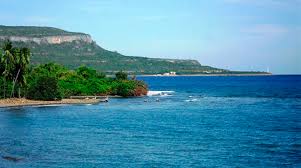 Guantánamo.- With results in the care of the province’s 12 protected areas, the progress of the State Plan to Combat Climate Change, Tarea Vida, and other successes, Guantanamo environmentalists are committed to efficient resource management and control of sustainable use of natural resources and ecosystems.
Guantánamo.- With results in the care of the province’s 12 protected areas, the progress of the State Plan to Combat Climate Change, Tarea Vida, and other successes, Guantanamo environmentalists are committed to efficient resource management and control of sustainable use of natural resources and ecosystems.
In this regard, they highlight the inclusion in the protected areas system of the “Pico Galán Managed Floristic Reserve,” belonging to the municipality of Yateras, the “Paso de los Alemanes” Outstanding Natural Elements in Baracoa, as well as “Maisí Caleta” and “Maisí Yumurí,” in that territory in the easternmost end of the country.
In these priority areas, there are updated management plans for biodiversity conservation, and work is also being done on the appropriate exploitation of the elver and tetí species, both of which are in high demand on the international market, says Lisandra Rubio Rodiles, the province’s deputy environmental delegate.
Likewise, Tarea Vida is distinguished by the rehabilitation of 32 hectares of degraded soils, efforts to protect natural resources along the southern coastal strip, the planting of nine varieties of crops such as corn, beans, and rice, and control actions to eradicate residential construction in coastal areas.
Additionally, the Guantanamo environmentalists carry out projects associated with coastal zone protection, aimed at reforestation, primarily along the Guantánamo Bay coastline, the monitoring of water quality at sampling point locations, and the status of marine species in that ecosystem.
Although Guantánamo meets environmental and sustainability indicators, the subdelegate points out, several challenges remain in the province, such as reducing pollution and advancing the circular economy strategy to achieve a healthy and sustainable environment for all.